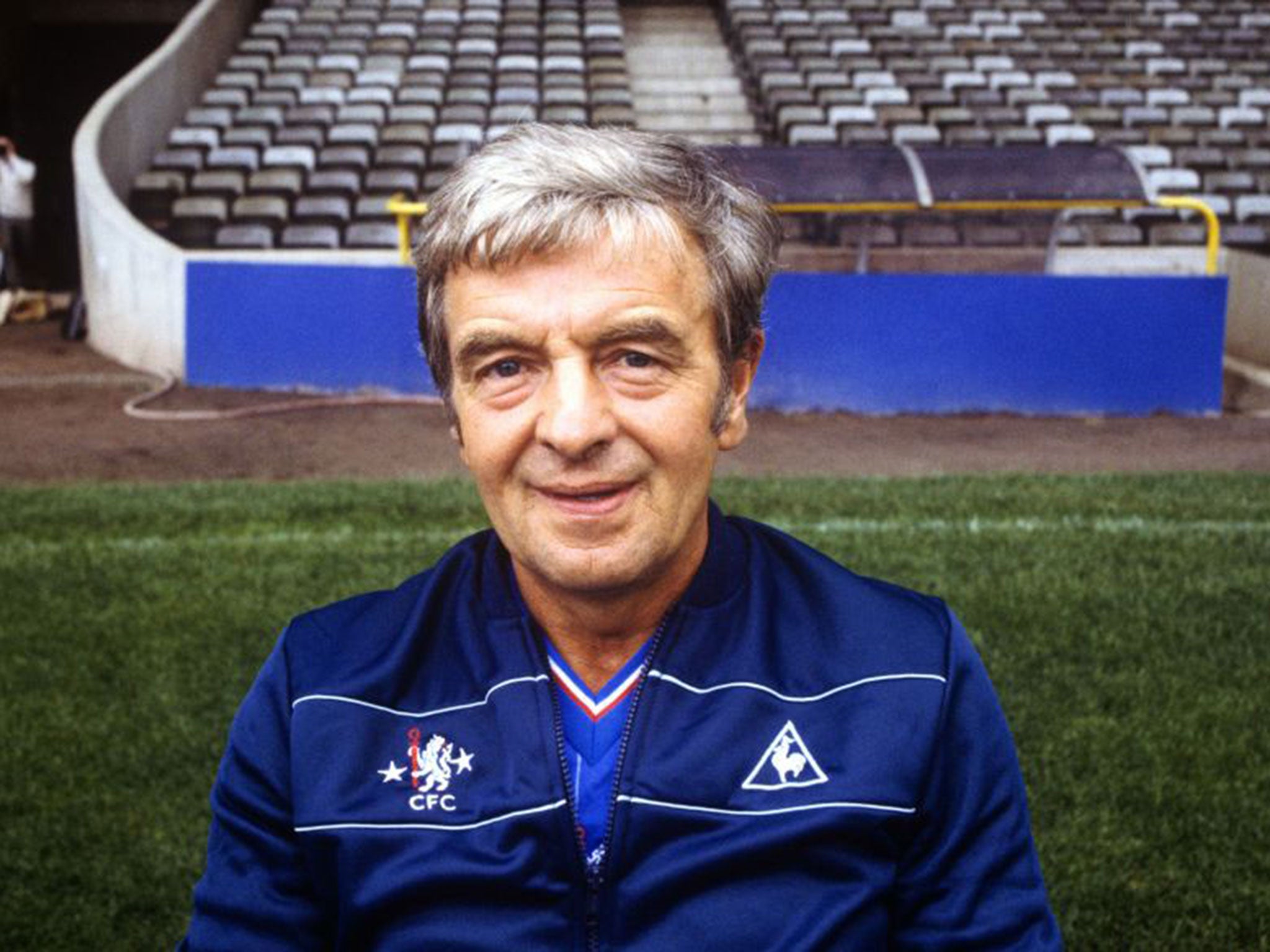John Neal: Footballer and manager who led impecunious Chelsea out of the Second Division doldrums in the early 1980s

John Neal was a Chelsea manager of the quiet and unassuming variety, but his impact at Stamford Bridge was profound. A resourceful and exceptionally shrewd football man, he did much to transform the playing fortunes of the club during the first half of the 1980s, providing a welcome interlude of stability and improvement in turbulent times for the impecunious Londoners, though somehow missing out on much of the public acclaim he deserved.
The north-easterner's achievement came as no surprise to fans of Wrexham, whom he had led into Europe during the 1970s while becoming the most successful manager in Racecourse Ground history, or of Middlesbrough, whom he had recently guided to four consecutive mid-table finishes in the English top flight.
Neal had entered the professional game as a pacy, intelligent, sharp-tackling full-back, recruited to second-tier Hull City from local team Silksworth Colliery as a teenager in 1949, but over the next half-decade, despite being versatile enough to occupy either defensive flank, he struggled to make an impact and in July 1956 he left the recently demoted Tigers for King's Lynn. The year in Norfolk suited him and he bounced back to the Football League with Swindon Town in July 1957, captaining the Wiltshire side and soon being feted as the best full-back in the lower divisions.
After two seasons at the County Ground Neal was snapped up by Aston Villa, newly relegated from the First Division, and he flourished under the canny tutelage of Joe Mercer as the Midlanders were crowned Second Division champions in 1959-60 then lifted the inaugural League Cup in 1961, beating Rotherham United in a two-legged final. Star attackers Gerry Hitchens and Peter McParland picked up most of the bouquets but Neal was widely praised for his smart defending.
However, in November 1962, having entered his thirties, he returned to the Third Division with Southend United, with whom he remained until 1966, latterly as a coach under Alvan Williams. When Williams became Wrexham manager in 1967, Neal joined him as trainer then moved into the managerial seat when the Welshman resigned in September 1968.
Proving a natural in the role, he led them to promotion from the Fourth Division as runners-up to Chesterfield in 1970, and laid huge emphasis on a youth system which produced the eminent likes of Mickey Thomas (later of Manchester United), Joey Jones (Liverpool), David Smallman (Everton) as well as numerous others.
Triumphs in the Welsh Cup in 1972 and 1975 earned entry to the European Cup-Winners' Cup, in which Wrexham reached the quarter-finals in 1976, bowing out to the eventual winners, Anderlecht, by a single goal, and in 1974 they stormed to the last eight of the FA Cup, where they lost to then-powerful Burnley. Success earned cash for ground improvements, while in 1976-77 Neal's buoyant side defeated Spurs in the League Cup and Sunderland in the FA Cup, also narrowly missing out on promotion to the second flight.
That spring, unsurprisingly, he was selected by top-level Middlesbrough as the ideal successor to Jack Charlton, whose team he substantially dismantled, which attracted criticism. However, he could hardly reject the massive fees offered for such as Graeme Souness and David Mills, and he espoused open, exhilarating football which ensured that the Teessiders held their own in the division until he left Ayresome Park in May 1981 following disagreement with the board over the sale of Craig Johnston to Liverpool.
Now cash-strapped Chelsea of the second tier chose him to replace England's World Cup hero Geoff Hurst as their manager, and he was exactly what they needed. Unlike Hurst, and his immediate predecessors Danny Blanchflower, Ken Shellito and Eddie McCreadie, Neal had hard management experience and, after a traumatic brush with demotion to the Third Division in 1982-83 – they escaped by three points – Neal turned them around with a mixture of expertise and sound commonsense.
Backed by a voraciously ambitious new chairman, Ken Bates, he rebuilt the team, bringing in a wave of excellent new players including strikers Kerry Dixon and David Speedie, winger Pat Nevin and goalkeeper Eddie Niedzwiecki, achieving an entertaining blend of flair, industry and determination which earned them the divisional title in 1983-84. That summer Neal underwent heart surgery, but he recovered to guide Chelsea to a rousing sixth place in the 1984-85 championship race and the semi-finals of the League Cup, only to be replaced by coach John Hollins at season's end, moving "upstairs" to become a director.
It was an arrangement that didn't last long and Neal was lost to the game, an unfittingly downbeat exit for a man who had done enough to suggest that, but for his health problems, he might have taken his place in the very front rank of football managers.
IVAN PONTING
John Neal, footballer and manager: born Seaham, County Durham 3 April 1932; played for Hull City 1949-56, Swindon Town 1957-59, Aston Villa 1959-62, Southend United 1962-66; managed Wrexham 1968-77, Middlesbrough 1977-81, Chelsea 1981-85; died 24 November 2014.
Join our commenting forum
Join thought-provoking conversations, follow other Independent readers and see their replies
Comments